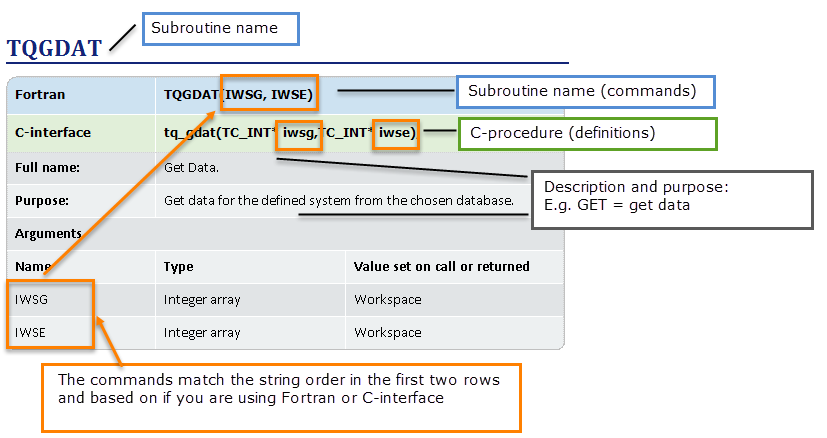TQCSP
| Fortran |
TQCSP (INDEXP, STATUS, VAL, IWSG, IWSE) |
|
|---|---|---|
| C-interface |
tq_csp(TC_INT index,TC_STRING status,TC_FLOAT amount,TC_INT* iwsg,TC_INT* iwse); |
|
|
Full name: |
Change Status of Phase. |
|
|
Purpose: |
Change status for a phase. |
|
|
Comments: |
The legal values for STATUS are given in Legal Phase Status. For ENTERED phase, VAL is provided as a start value. It is normally set to zero if the phase is not likely to be stable and one if expected to be stable. Setting a phase SUSPENDED or DORMANT is a way to calculate a metastable equilibrium if the phase would be stable. With the DORMANT status one can know if it would be stable or not. For these two statuses, VAL is irrelevant and may be simply put to zero. For FIXED phase the exact amount of the phase must be given. Note that the amount is in number of mole formula units. Setting a phase FIXED decreases the degrees of freedom in the system by 1. To restore the lost degree of freedom the phase should be reset ENTERED. Set a FIXED phase to zero amount is the best way to get the phase stability limits like liquidus or solidus. |
|
|
Arguments |
||
|
Name |
Type |
Value set on call or returned |
|
INDEXP |
Integer |
Set to a phase index. |
|
STATUS |
Character*12 |
Set to the status code |
|
VAL |
Double precision |
Set to phase amount in number of mole formula units. |
|
IWSG |
Integer array |
Workspace |
|
IWSE |
Integer array |
Workspace |
Note the following conventions to distinguish between the programming languages.
- Routines starting with TQXXX, for example, TQGDAT, are in the Fortran interface
- Routines starting with tq_xxxx, for example tq_gdat, are in the C-interface.
- In Fortran, all routines are subroutines and do not return any values except where explicitly declared as functions.
- All the C procedures are declared as void and do not return any values except where explicitly otherwise declared.
An example of how to read the subroutine definitions.
